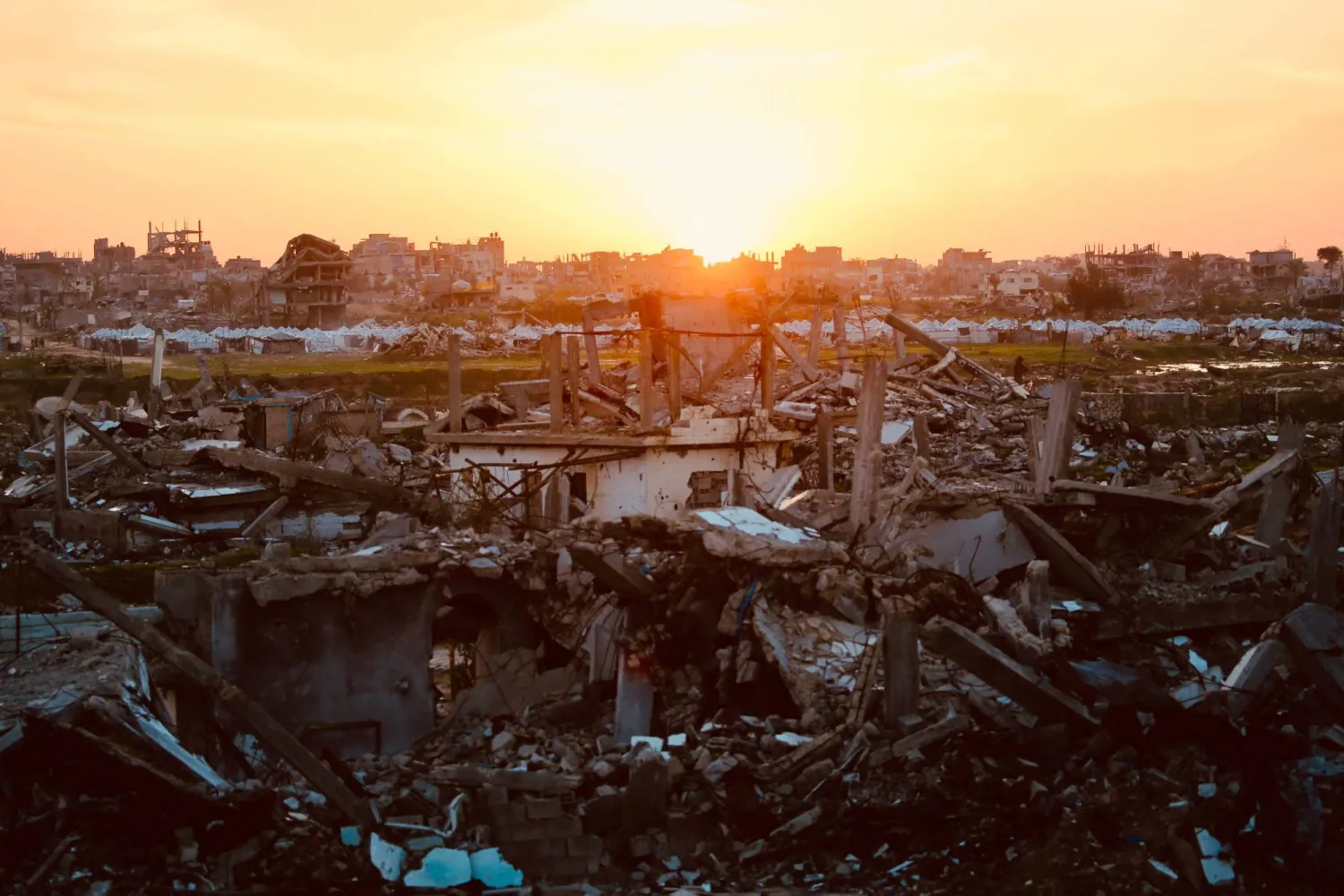Efforts to get desperately needed humanitarian aid to war-wracked northern Gaza gained momentum Wednesday with the European Union increasing pressure for the creation of a sea route from Cyprus to Gaza and British Foreign Minister David Cameron saying that Israel’s allies were losing patience.
While aid groups say all of Gaza is mired in a humanitarian crisis, the situation in the largely isolated north stands out. Many of the estimated 300,000 people still living there have been reduced to eating animal fodder to survive. The UN says that one in six children younger than 2 in the north suffers from acute malnutrition.
Amid the global pressure to alleviate the crisis, two Israeli officials said Wednesday the government will begin allowing aid to move directly from its territory into northern Gaza and will also cooperate with the creation of the sea route from Cyprus.
Israel would allow 20 to 30 aid trucks to enter northern Gaza from Israel on Friday, the start of more regular deliveries via that route, one of the officials said. It will also begin doing security checks Sunday on aid in Cyprus before it's delivered via sea to Gaza, the official said. The ship will be part of a pilot project to test the feasibility of the sea route. The aid is UAE-funded and made possible with US involvement.
The officials spoke on condition of anonymity because they were not authorized to discuss the upcoming shipments with the media.
Aid groups have said it has become nearly impossible to deliver supplies within most of Gaza because of the difficulty of coordinating with the Israeli military, the ongoing hostilities and the breakdown of public order. It is even more difficult to get aid to the north.
Trucks carrying humanitarian aid have to drive from the Rafah crossing with Egypt or the Kerem Shalom crossing with Israel, both on the southern edge of Gaza, through the conflict zone to reach the largely cut-off areas in the north.
Last week, an attempt by the Israeli military to facilitate the movement of aid ended in tragedy when more than 100 Palestinians were fatally shot by Israeli forces or trampled to death in a melee.
On Wednesday, hundreds of people ran along a seaside road on the outskirts of Gaza City to collect bags of flour and boxes of water and canned food donated by Türkiye and Egypt and were part of a shipment trucked in from southern Gaza.
British Foreign Secretary David Cameron met with Benny Gantz, a visiting member of Israel's war Cabinet, and pressed him to increase the flow of aid into Gaza.
“We are still not seeing improvements on the ground. This must change,” Cameron said in a statement posted on X, formerly known as Twitter.
South Africa, which filed a genocide case against Israel at the International Court of Justice, asked the court Wednesday to order Israel to allow in aid “to address famine and starvation” in Gaza.
Meanwhile, European Union Commission Chief Ursula von der Leyen will visit Cyprus on Friday to inspect installations at the port of Larnaca, from where aid would leave for Gaza if a sea route is established, Cypriot government spokesman Constantinos Letymbiotis said.
EU spokesman Eric Mamer said the bloc is hopeful the corridor will open “very soon.”
Concerned by the lack of access to food, the United States, Jordan and other nations have begun making air drops of aid in recent days, but aid groups say only a fraction of the needed assistance can be delivered by air.
The war began with a Hamas attack on southern Israel on Oct. 7 in which Palestinian militants killed around 1,200 people and took about 250 hostages. More than 100 of them were released during a weeklong ceasefire in November.
The attack sparked an Israeli invasion of the enclave of 2.3 million people. Gaza’s Health Ministry said Wednesday the Palestinian death toll from the war climbed to 30,717. The ministry is part of the Hamas-run government and maintains detailed casualty records. It does not differentiate between civilians and combatants in its tallies but says women and children make up around two-thirds of those killed.
Israel says it has killed over 13,000 Hamas fighters, without providing evidence.
Aid groups say the fighting has displaced most of the territory’s population and pushed a quarter of the population to the brink of famine.
Meanwhile, efforts to negotiate a ceasefire to start before the beginning of the Muslim holy month of Ramadan in a few days have so far borne no fruit.
The US, Qatar and Egypt have worked on an agreement in which Hamas would release up to 40 hostages in return for a six-week ceasefire, the release of some Palestinian prisoners and a major influx of aid to Gaza. Hamas has said it wants a full end to the war and Israeli forces’ withdrawal.









